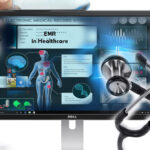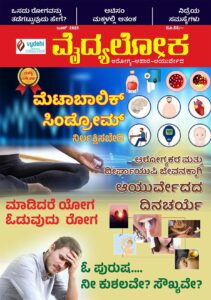Why is IT (Information Technology) Relevant in Healthcare? ‘Information’ is the essence of better management of – patient care, personnel, Finances/other resources.
‘Information’ is the essence of better management – Management of patient care, Management of personnel, Management of Finances/other resources. We get access to ‘data’ from many sources day in and day out, but the relevant piece of it and ‘compiled’ version is known as ‘Information’. Information helps in better and timely decisions.


The advent of IT – a good combination of computer hardware and software provides an efficient tool in achieving this goal. Hardware and software are inseparable as software cannot exist independently and hardware is almost useless without appropriate software.
Patient care, in a typical Hospital scenario envisages – patient visit to Hospital –registration – Doctor consultation – Diagnostic services – remedial prescription in the form of medicines etc. This is necessary even to all out patients.
Patient data/ history of patient could be made available to the doctor at the click of a button either on desktop PC/ mobile phone during progressive visits of the said patient. Computerisation helps a great deal in accessing patient data anywhere, anytime for providing advice and treatment to patients very quickly. Availability of history of patients, will help doctors in taking right and timely decisions.
And there is no better tool than good software to aid a doctor in providing patient care.
Good software can also compile patient illness of similar type, age and gender including specific geographical and professional hazards to patients.
In a field sample survey during 2000-01 of Medical doctors – Allopathic and Ayush, it was found that no more than 1% of doctors were maintaining any record of the patients. It is to be noted that in 2006 Govt of India mandated through an act that practising doctors should keep patient records for at least 3 years. In spite of it, less said the better in availability of patient profiles across the country. Of course Medicolegal cases (MLC) and other sensitive data is a different matter.
We have over a Million registered doctors in the country as against the WHO (World Health Organization) recommendation of 2.1 million doctors for a population of 1.25 billion in India. It’s a far cry before we reach that milestone with the flawed healthcare policies of various governments. Healthcare expenses have reached prohibitive levels to common man’s reach in India. Hence, the option of health insurance over cash payments is increasingly becoming popular.
Insurance:
Today over a period of last 2 decades healthcare insurance – private as well as government initiatives – is coming of age with coverage of nearly 30-40% of the population, importance of IT in healthcare cannot be ignored.
Any data, like patient illness, admission and discharge record, diagnostic reports and bills are to be provided to Insurance companies in the electronic form. Govt of India has just soft launched ‘Ayushman’ health insurance scheme across the country to cover nearly 50% of Indian populace. We can’t even imagine providing and managing healthcare under Ayushman without IT infrastructure.
Suicides:
Approximately 1.3 lakh suicides take place in India, out of which approximately 12% die from chronic illness. With better clinical data of these deaths were to be available beforehand, it could be prevented with better treatment. And that would be possible if IT is applied in patient profile management.
Prudence of EMR (Electronic Medical Record):
Ministry of Health & Family Welfare (MoH&FW) has notified the Electronic Health Record (EHR) standards for India in Sept 2013, and revised EHR standards in Dec 2016.
Case study: A patient visited a dermatologist for a skin problem. The doctor examined and prescribed some medicine. But the counter salesman of the pharmacy gave a substitute, and the disease aggravated due to reaction. Ultimately, the patient had to suffer for almost a month even after undergoing a corrective surgery, for no fault of hers. It became a “case of negligence” by the doctor and finally consumer courts at district and state level awarded a huge compensation to the patient.
In this case, the doctor had not maintained any record of the prescription/ case history and thus could not prove his case. It may be difficult to maintain medical records manually and thus EMR becomes highly relevant.


G.L.Nagendra-Managing director
Ciftech solutions
488-B,3rd Block, KIADB Bldg.
Peenya 2nd stage, Bengaluru-58
Ph: 080-28367373/7474 Mob – 9448283850
Email: ciftechsolutions@gmail.com











